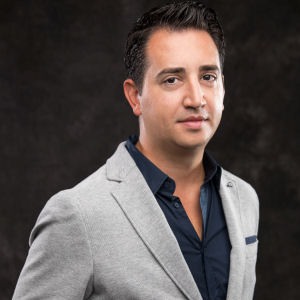November 7, 2018 | 9:25am ET
BY DAVID PAGNOTTA, The Fourth Period
WORLD CUP OF HOCKEY WILL GET FACELIFT
TORONTO, ON -- The NHL and NHLPA are working together to put the finishing touches on plans for the 2020 World Cup of Hockey.
While in Helsinki for the Global Series games between the Winnipeg Jets and Florida Panthers, I had the opportunity to chat with NHL Deputy Commissioner Bill Daly about the next World Cup, which will see some changes from the 2016 tournament.
First and foremost, there needs to be some kind of assurance the 2020 games actually happen.
The World Cup is tied to the next Collective Bargaining Agreement negotiations, which quietly got underway until we broke the news of its preliminary commencement last week.
As the NHLPA’s top guns meet with their members throughout the first half of this season to discuss current issues and concerns surrounding the current CBA – NHLPA Executive Director met with the Jets in Helsinki last week – the NHL is presently focused on a few other items, such as Seattle entering the League, the World Cup and current ownership of its 31 clubs (more on that later).
“We are planning for the World Cup, but it’s all going to be contingent on whether we can figure out this labour issue,” Daly told TFP on Friday in Helsinki. “One’s contingent on the other, but there’s no big surprises with respect to what the planning on the World Cup would look like.”
The most significant change to the next World Cup will revolve around the host cities (plural).
In 2016, Toronto was the central hub for the games, with pre-tournament exhibition contests across multiple cities in North America and Europe. Daly indicated the pre-tourney games haven’t been fully discussed yet, but the NHL will be moving away from one central city as host.
The 2020 WCH format will revert back similarly to what it was in 1996 and 2004 with tournament games in various cities.
“I think it’s safe to say that we agree that (the tournament’s) probably not going to be one location,” Daly said. “We are going to have some games in different locations and probably some games in Europe, is what I would guess.”
Edmonton and Chicago are two markets expected to house at least one game, but Daly couldn’t confirm that, reiterating cities haven’t been finalized.
“We haven’t talked about pre-tournament games, and part of that depends on timing, a little bit,” he said. “I think the thought process that we’re currently engaged in is that the main tournament games will be in multiple venues.”
The NHLPA confirmed their position aligned with that of the NHL’s, as this is a joint partnership between the League and the Union. However, in order to do a World Cup in 2020, both the NHL and NHLPA would have to decline the CBA re-opener.
“Both sides seem to agree that if we were to do a World Cup in Sept. 2020, we would need to decide on that by around January,” one separate source told TFP.
Daly indicated the majority of planning for a 2020 WCH would need to wrap up “about the end of the calendar year,” but added there are additional contingencies in place if the current CBA isn’t extended.
The NHL will have the first opportunity to opt out of the current CBA on Sept. 1, 2019, which could result in a lockout ahead of the 2020-21 season. Should the NHL decline its option, the NHLPA can exercise its own on Sept. 15, 2019.
If both sides decline the re-opener, the current CBA continues through the full term (2021-22 season).
There are expected to be some CBA-related discussions pertaining to future World Cups, such as player payments, travel, sponsorship and television rights (ESPN is expected to remain the U.S. partner for 2020), but the primary factor as to whether or not there will be a tournament in 2020 is a potential work stoppage.
“We either fix this or don’t fix this by the next couple of months,” Daly said.
Given the contingencies in place, I’m led to believe the official cancellation of the 2020 WCH might not occur until Sept. 2019, should either the NHL or NHLPA decide to re-open the CBA. While planning will wrap up in the coming months, the final nail in the coffin might not happen until next September.
Remember, the NHL and NHLPA did not announce the return of the World Cup of Hockey in Sept. 2016 until Jan. 2015 – 20 months before the tournament got underway. With the bulk of planning set to conclude around the end of 2018, executing the event with 12 months to go isn’t unrealistic.
Two additional changes expected for 2020? No more Team North America or Team Europe.
“I think we did the Team Europe and the Under-23 Team as kind of a one-off, one-time thing,” Daly said. “I think our preference probably would be to have national entries, but nothing is set in stone.”
As popular as the teams may have been, especially Team N.A., for an international tournament like this, both parties agree having countries represented is the best approach.
How this translates into other international games, such as the Winter Olympics... well, the World Cup puts money in the owners’ pockets – a 50-50 split with the NHLPA, and the 2016 tournament generated roughly $40 million total profits, a figure both sides want to see climb in 2020 – whereas the Olympics do not. But that’ll be debated heavily in the CBA negotiations.
2019 GLOBAL SERIES GAMES
With preliminary CBA talks and World Cup planning well underway, one thing the NHL’s made clear it wants to keep up is the NHL Global Series.
But expect this topic to be a matter brought up in the CBA negotiations.
Until then, the NHL will continue to hold pre-season games featuring two clubs in China next September, while four teams will return to Europe next season — they’ll follow the same model as this season, with one team ending its pre-season in Switzerland and another in Germany, and both meeting in Prague, Czech Republic for at least one regular-season game to officially kick-off the season.
Two additional teams will play two games in Stockholm, Sweden, in early-Nov. 2019.
Though the teams participating overseas in 2019 haven’t been announced yet, TFP Sr. Writer Dennis Bernstein confirmed on Tuesday the Los Angeles Kings will head to Berlin to likely end their pre-season and then open the 2019-20 campaign in Prague.
Only seven NHL teams haven’t played a game overseas yet – the Dallas Stars, Montreal Canadiens, New York Islanders, Philadelphia Flyers, Toronto Maple Leafs, Vegas Golden Knights and Washington Capitals – though it’s believed the Flyers and Islanders may be next on the docket.
The Global Series is a big hit overseas, with the games in Helsinki selling out in five minutes. As the local fans supporting their homeland players (Aleksander Barkov fans strongly outweighed the Patrik Laine supporters), fans from all parts of Europe came to visit, and a strong contingent of Jets fans from our side of the pond made the trip to watch their team.
The games for 2020-21 will be in jeopardy due to a pending work stoppage, like everything else, but the NHL wants them carry out well after a new CBA is ironed out. Despite the fact the athletes aren’t fully acclimated to the time change by the time the puck drops, most of them agree the experience adds value. But does it work economically for all parties involved?
Even with 13,000-14,000 fans in Helsinki and Stockholm gobbling up tickets at inflated prices in a matter of minutes, and all that money contributing to Hockey Related Revenues, could this be an event highlighted in CBA talks? It sure sounds like it, according to NHLPA Executive Director Donald Fehr.
“It’s a bit of a conundrum,” Fehr told me about the Global Series games while in Helsinki on Thursday. “You have to believe that if you do the right kind of investment – marketing, promotion, branding and publicity – that over time, it’s going to be worthwhile, it’s going to increase the visibility and the value of the sport. You ought to be able to generate meaningful amounts of revenue doing that. But in order to do that, you have to make it an addition worth the while of the players that are playing now.”
Food for thought, as both sides get a little more cryptic in their messaging when it comes to potential CBA-related chatter.
AND WHAT ABOUT THE OLYMPICS?
NHL Commissioner Gary Bettman made it very clear while in Helsinki that the League’s position on the Winter Olympics hasn’t changed.
Bettman indicated “the Olympics are terribly disruptive to our season,” which, from an owners’ perspective, one can understand. But if the NHL is truly set on growing the game internationally as the World Cup and Global Series suggest, a concession here may need to be made – and in true negotiations style, they’ll concede in exchange for some sort of concession from the NHLPA side (shorter-term contracts, perhaps?).
“That’s been the position they’ve had for some time, and we have a different view,” Fehr said. “In no particular order of importance: it’s really important to the players, it’s an act which has patriotic overtones, and guys want to represent their country, which is an emotion you would want them to have.
“We still feel pretty strongly that you ought to be able to work out something so that you get the appropriate marketing and promotional value out of having NHL players be on centre stage at an event which has the fan-interest worldwide that the Olympics does... but we aren’t at the stage of having any meaningful discussions about China yet.”
I suspect those “meaningful discussions” will get going in the spring.
David Pagnotta is the Editor-in-Chief of The Fourth Period.
Follow him on Twitter and Instagram.
Past Columns:
Nov. 06, 2018 - Ownership change coming in Arizona
Oct. 27, 2018 - NHL, NHLPA begin preliminary CBA talks
Jul. 02, 2018 - As UFA market dwindles, trade talk takes over
Jun. 28, 2018 - Senators receive off for franchise



